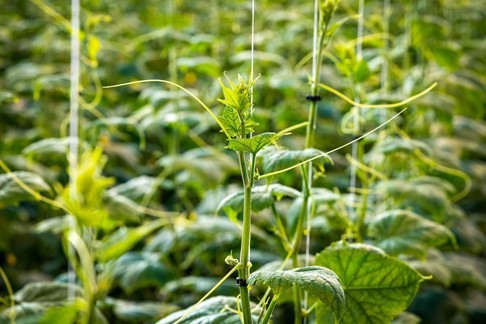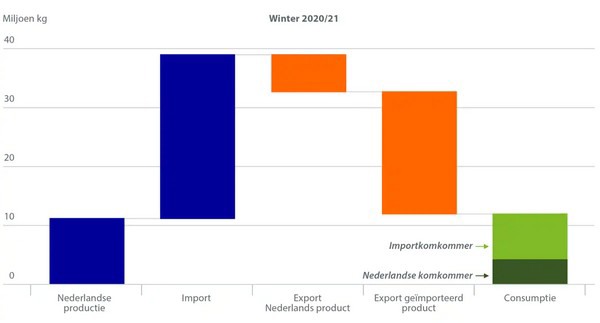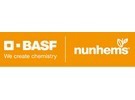The current high energy costs will undoubtedly, (also) affect Dutch cucumber cultivation this winter. However, exactly when that will become most evident is the subject of discussion.
Rabobank is a multinational banking and financial services company in the Netherlands. It predicts that December/January production will fall to levels from four years ago. BASF's breeding company is strong in lit winter cultivation varieties. It sees things differently, explains Rens Muusers, Sales Specialist EMEA Cucumber.

BASF's Hi Power variety is grown under lights.
"Rabobank has predicted production declines in January and February. But in those two months, growers who've planted true winter crops greatly influence/determine production. They plant these around October, November. For long cucumbers, the acreage is fairly similar to the 2020/2021 season," he begins.
"Some growers have stopped, but there are also new ones this season. So, we think the acreage is the same. Production will, however, be a little bit lower because some growers are lighting less. Nonetheless, I don't think production will fall back to the level of four years ago. There was much less acreage then."
Neither does Rens see a roughly 40% decline. That is what is estimated for tomato cultivation under lights. "I think it will be less in cucumbers," he says. Rens adds that there is slightly less snack and mini cucumber winter production acreage than last season. "But I think it's still higher than four years ago."
Traditional cultivation changing
Rens sees that traditional cultivation is changing the most. "Planting is being done later. That's why I think the production drop will be much greater in February and March. And that it will drop sooner, to a significantly lower level," he explains.
The current high energy prices are, clearly, having an effect now already. Rens and his colleagues see that businesses are faced with difficult choices. They sometimes have to make drastic decisions. "In the most extreme cases, I've, unfortunately, seen and heard that plant breeders have decided to toss out plants."
"And that growers are postponing planting. The energy market situation is highly unpredictable. It has fluctuated wildly in recent months. That means, from week to week, the situation sometimes changes. As do the choices growers are making about what they'll ultimately do," Rens concludes.

Click here to see Rabobank's 2017 figures.
Medium-term scenarios
Rabobank provides several medium-term scenarios. At the current high prices, the bank foresees winter crops largely disappearing. That is, except for a few supermarkets that want to continue differentiating themselves. Or energy prices could fall back to pre-September 2021 levels or just slightly above. Then production could return to last winter's level. As long as the price difference between lit cultivation cucumbers and imports remains acceptable, Dutch supermarkets will eagerly keep participating.
A third scenario - further growth in Dutch winter cultivation from 2022/2023. According to the bank, that would require both lower energy costs and higher exports. The bank sees too little growth potential for sales in the Netherlands. That is partly because large supermarket chains do not want their cucumber prices to be too far out of step with those of their competitors.
For more information:
Rens Muusers
BASF
Tel.: +31 (0) 618 719 921
Email: rens.muusers@vegetableseeds.basf.com
Website: www.nunhems.nl

